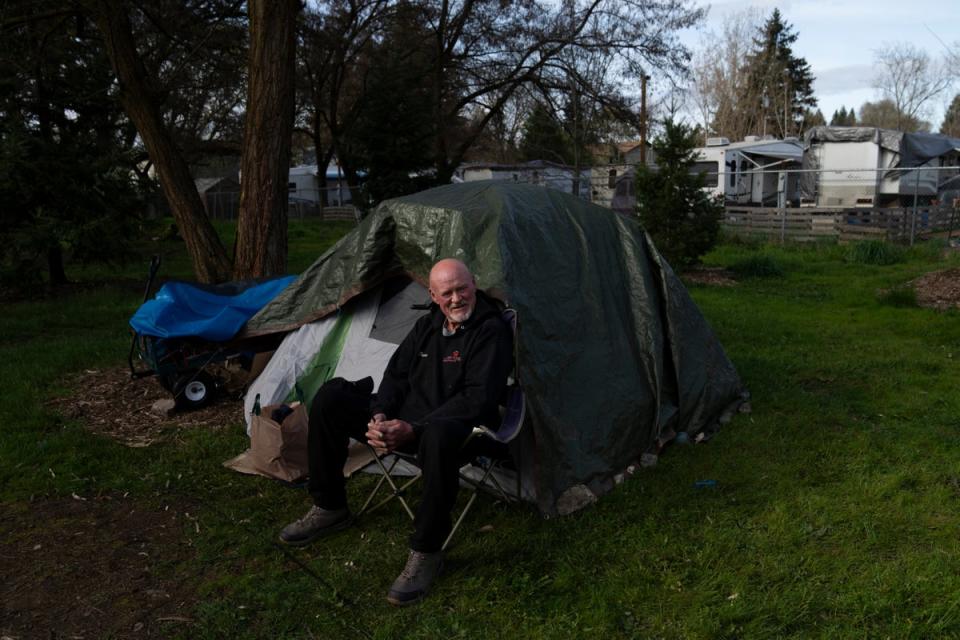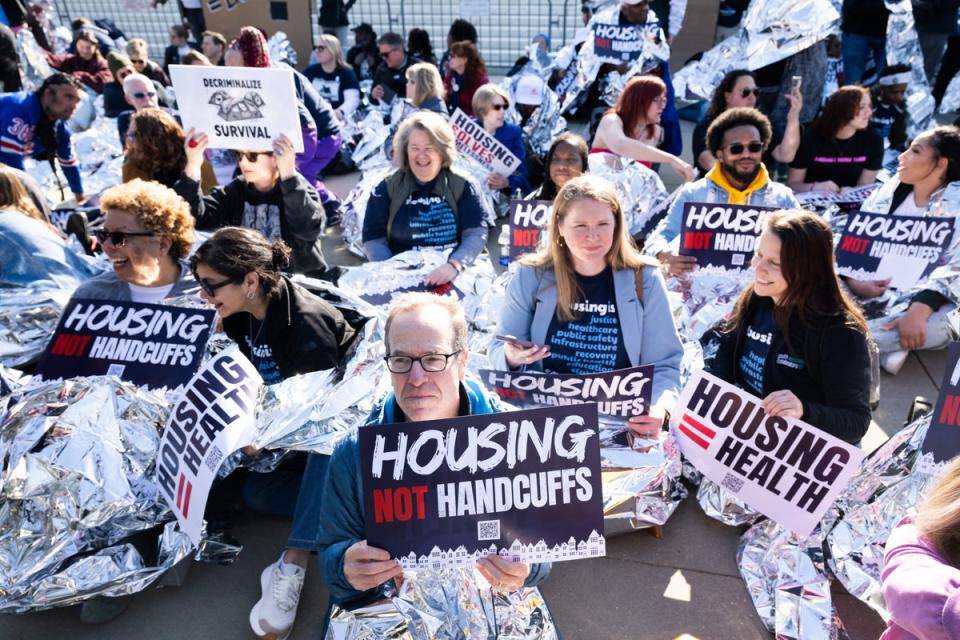Can cities criminalize homeless people? The Supreme Court is set to decide
The Supreme Court is set to weigh in on one of the most consequential cases on homelessness in the United States in decades.
On Monday, the justices heard oral arguments in the case City of Grants Pass v Johnson, which addresses whether cities can punish individuals for sleeping outside on public property if they have nowhere else to go.
The case was brought by a group of unhoused people in Grants Pass, Oregon who challenged a series of city ordinances that allowed police to fine, ticket or jail individuals for sleeping or camping on publicly-owned property.
The plaintiffs argue that those punishments are “cruel and unusual”, violating their Eighth Amendment right in the US Constitution.
But Grants Pass, a city of just under 40,000 people, argues that the laws were created to make people sleeping on public property “uncomfortable” after some locals raised safety concerns.
The city has as many as 600 people experiencing homelessness but a vacancy rate of 1 per cent and little to no affordable housing. While there is a homeless shelter available, it is a high-barrier one which means that individuals must abide by strict rules to obtain a bed.
So far, federal judges in lower courts have sided with the plaintiffs, blocking Grants Pass from enforcing the ordinances. The Supreme Court’s decision is expected in or before June.
In 2013, the Grants Pass city council decided to impose $295 fines for using blankets, pillows or cardboard boxes to sleep within the city. That fine increases to $537.60 if it’s unpaid. Should a person receive two citations, police can ban the person from city property – a punishment that carries a penalty of up to 30 days in jail and a $1,250 fine.
In 2018, the Ninth Circuit Court of Appeals ruled in another case, Martin v City of Boise, that cities cannot enforce anti-camping ordinances if they do not provide enough shelter beds.

Shortly after that ruling, plaintiffs brought a lawsuit against Grant’s Pass. A federal judge in a lower court issued a permanent injunction preventing the city from enforcing the ordinance at night, and requiring them to provide 24-hour notice to do so during the day. A federal appeals court refused to rehear the arguments, leading the city to ask the Supreme Court.
Grants Pass says that the ruling in Martin v City of Boise lacks “constitutional foundation” and allows courts to regulate homelessness rather than local governments. They argue that it is difficult to determine if a person is experiencing homelessness voluntarily, such as refusing to stay in a shelter because their dog cannot stay with them, for example.
The debate surrounding homelessness in Grants Pass is a small part of a much larger issue for US cities, particularly in California where more than 100,000 people are without permanent shelter.

California Governor Gavin Newsom has filed a brief in the case saying the lower court’s decisions make it difficult for lawmakers to address the problem of encampments which “foster dangerous and unhealthy conditions for those living in them and for community members around them”.
But advocates say the opposite.
“We hope that the Supreme Court recognizes the profound indignity of arresting or fining people for simply existing. There is no punishment that fits the ‘crime’ of being forced to sleep outside,” Scott Katovich, an attorney with the ACLU Trone Center for Justice and Equality, said in a statement.
“There are proven solutions to end homelessness, like affordable housing, accessible and voluntary services, and eviction protections. Cities should be prioritizing these solutions rather than asking the courts to strip away the rights and dignity of unhoused people.”


